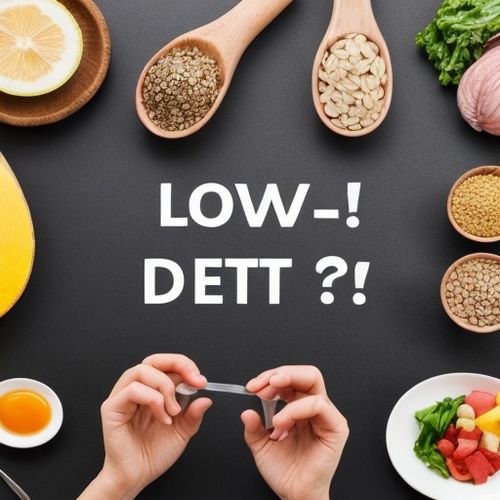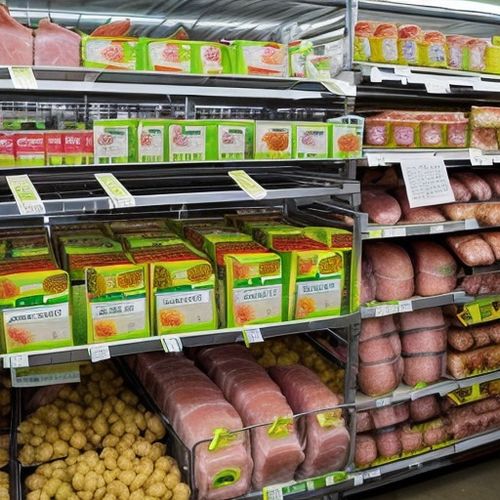A recent investigation into South Africa's food industry has uncovered a disturbing revelation: several well-known ham brands have been found to contain carcinogenic substances. The discovery has sent shockwaves through the nation, raising serious concerns about food safety standards and corporate accountability. As consumers grapple with the implications, questions are being asked about how such a breach could occur and what steps will be taken to prevent future incidents.
The scandal came to light when an independent laboratory, commissioned by a consumer rights group, tested samples of popular ham products. The results were alarming – traces of nitrosamines, a group of chemicals known to cause cancer, were detected in multiple brands. These findings were subsequently verified by government food safety agencies, confirming the presence of the hazardous compounds at levels exceeding international safety thresholds.
Public outrage has been mounting as the list of affected brands continues to grow. Many of these products are household names, trusted by generations of South African families. The revelation that these everyday food items might pose long-term health risks has left consumers feeling betrayed and demanding answers. Social media platforms have been flooded with angry posts from concerned citizens, while advocacy groups are calling for immediate action from regulatory bodies.
Food safety experts explain that nitrosamines can form during meat processing, particularly when sodium nitrite (a common preservative) interacts with proteins under high heat. While small amounts might be unavoidable, the levels found in these products suggest either negligent manufacturing practices or deliberate cost-cutting measures that compromised safety. The situation is particularly troubling because processed meats have long been suspected of containing such compounds, yet proper monitoring appears to have failed.
The economic fallout has been immediate and severe. Supermarket chains have begun pulling affected products from shelves, while restaurants and catering services are scrambling to find alternative suppliers. Shares in major food producers implicated in the scandal have plummeted, wiping millions off market valuations. Industry analysts predict this could lead to a significant shift in consumer behavior, with many South Africans likely to turn away from processed meats altogether.
Government response has been mixed, with some officials calling for criminal prosecutions while others advocate for tighter industry regulations. The Department of Health has announced emergency measures, including more frequent inspections and stricter testing protocols. However, critics argue that these actions come too late, pointing to years of underfunded food safety programs and cozy relationships between regulators and large food corporations.
International implications are beginning to emerge as neighboring countries impose temporary bans on South African processed meat imports. The scandal threatens to damage the reputation of South Africa's entire food export industry, which has worked hard to meet global standards. Trade representatives are now facing difficult questions from foreign partners about the adequacy of the country's food safety systems.
Consumer advocacy groups are using this moment to push for greater transparency in food labeling. Many argue that current regulations allow manufacturers to obscure potentially harmful ingredients behind vague terms like "flavor enhancers" or "preservatives." There are growing calls for mandatory disclosure of all additives and their potential health effects, giving shoppers the information they need to make informed choices.
The human cost of this scandal may not be fully understood for years. While immediate health risks from occasional consumption are low, medical professionals warn that regular intake of these contaminated products over time could significantly increase cancer risk. Public health clinics have reported a surge in concerned patients seeking advice, stretching already limited resources.
As the investigation continues, attention is turning to who knew what and when. Leaked internal documents suggest some manufacturers may have been aware of the issue but chose not to act. If proven, this could lead to unprecedented legal consequences, with class action lawsuits already being prepared by several law firms. The scandal has also reignited debates about the ethics of meat processing and whether current industrial practices prioritize profits over public health.
In the wake of these revelations, some smaller producers who have always used traditional, nitrate-free methods are seeing increased demand for their products. This suggests a potential silver lining – the crisis might accelerate a shift toward cleaner, more transparent food production methods. However, for most consumers, the immediate concern remains how to feed their families safely while the full extent of the problem becomes clear.
The ham contamination scandal has exposed deep flaws in South Africa's food safety infrastructure. It serves as a stark reminder that without proper oversight and corporate responsibility, even the most trusted brands can put public health at risk. As the nation waits for answers and solutions, one thing is certain – the way South Africa produces, regulates, and thinks about processed food will never be the same again.

By James Moore/Apr 9, 2025

By Natalie Campbell/Apr 9, 2025

By Rebecca Stewart/Apr 9, 2025

By Rebecca Stewart/Apr 9, 2025

By Olivia Reed/Apr 9, 2025

By Emma Thompson/Apr 9, 2025

By Noah Bell/Apr 9, 2025

By Emma Thompson/Apr 9, 2025

By Amanda Phillips/Apr 9, 2025

By James Moore/Apr 9, 2025

By William Miller/Apr 9, 2025

By John Smith/Apr 9, 2025

By Eric Ward/Apr 9, 2025

By Emma Thompson/Apr 9, 2025

By Samuel Cooper/Apr 9, 2025

By Lily Simpson/Apr 9, 2025

By David Anderson/Apr 9, 2025

By Megan Clark/Apr 9, 2025